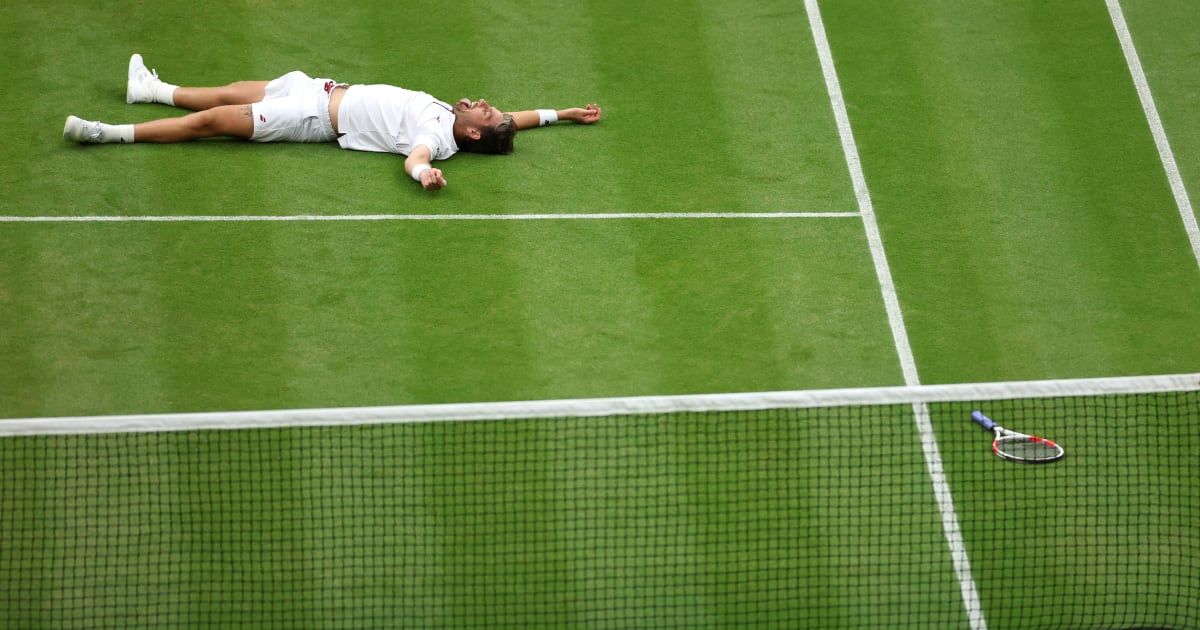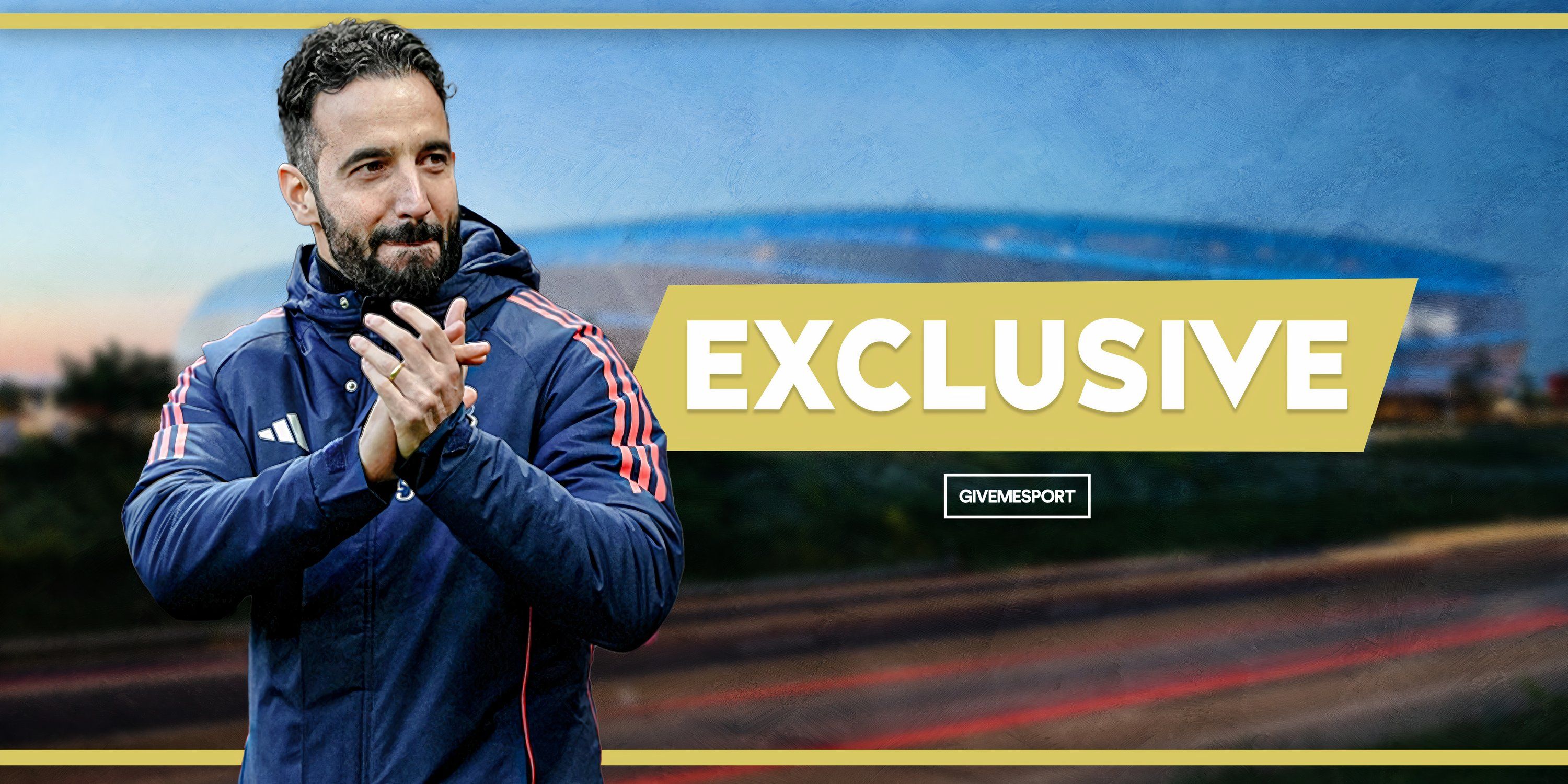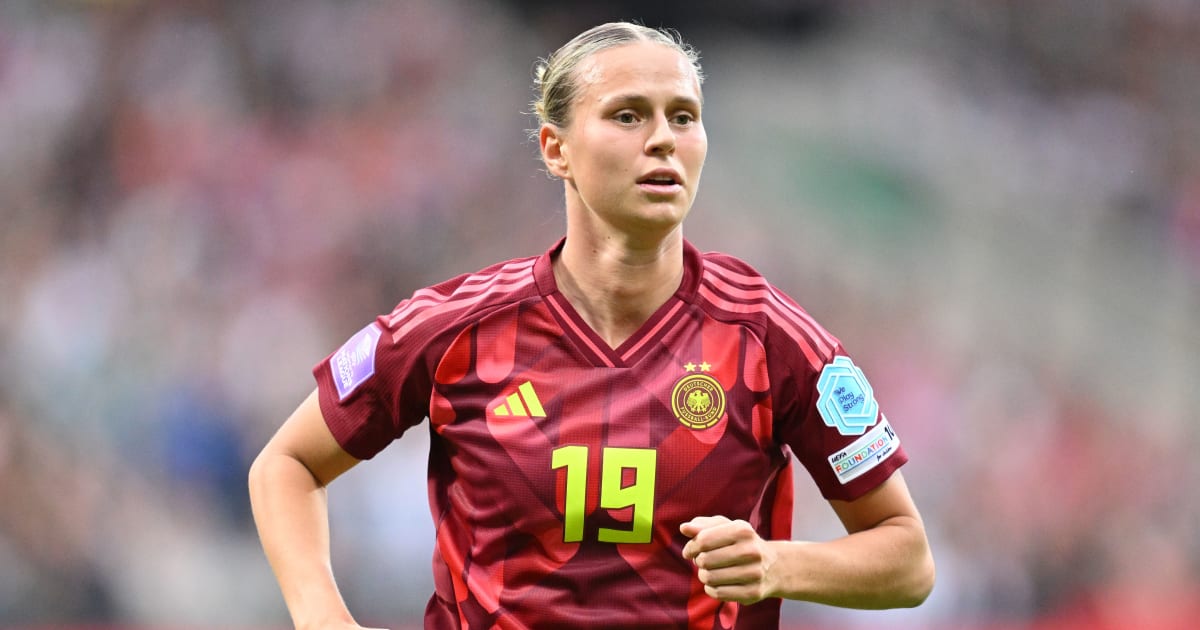In loss to Alcaraz at Wimbledon, Rublev finds personal victory

Open this photo in gallery: Known for a series of on-court outbursts during his tennis career, Andrey Rublev kept his composure in a difficult loss to world No. 2 Carlos Alcaraz on Sunday in their fourth-round match at Wimbledon.KIRILL KUDRYAVTSEV/AFP/Getty ImagesAndrey Rublev arrived at Wimbledon with a new, mature attitude and a determination to control his infamous on-court outbursts and self-flagellation.That healthier outlook helped the 27-year old Russian win his first three matches and he exuded so much confidence during the week that he started offering other players tips on how to deal with their mental health.On Sunday Rublev came up against a true test of his newfound self improvement in the form of world No. 2 Carlos Alcaraz. Rublev fell short – 7-6, 3-6, 4-6, 4-6 – but he only smashed his racket into his shoe once in frustration and left the court waving to the crowd and signing a few autographs.Alcaraz “was able to keep focus all the match without dropping anything,” Rublev told reporters after the match. But unlike so many previous losses, he immediately focused on the positives.“The way I’m playing now, the way I’m feeling, the way I’m playing in practices, I didn’t since a while, I don’t remember myself like this,” he said. “If I am able to keep it that way, for sure sooner or later something better will happen.”Alcaraz pushes Wimbledon win streak to 18, books spot in quarterfinalAt Wimbledon, a player’s lament about loneliness revives a conversation about mental healthRublev got out to a fast start on Sunday and jumped to a 4-1 lead in the opening set. He won the tie-breaker 7-5 and looked calm and focused. But Alcaraz slowly reeled him in.The turning point came in the ninth game of the second set when Alcaraz won a break point after Rublev double faulted. Alcaraz took the next game with ease and won the set 6-3. He got one break in each of the third and fourth sets, and cruised to his 18th consecutive win at Wimbledon.He’ll next play in the quarter-finals against Britain’s Cameron Norrie. His run for a third straight title, and sixth Grand Slam, remains on course.Rublev will take some comfort that he held his own for much of the match and never lost his composure.He’s long been known for extreme volatility on the court. He was disqualified from a tournament in Dubai last year after berating a line judge. At the Paris Masters last October he yelled at the crowd and struck his knee in frustration so many times with his racket that he drew blood. A year ago at Wimbledon he repeatedly smashed his racket into his leg during a first-round loss to world No. 122 Francisco Comesana.Open this photo in gallery: Looking to change his short-tempered ways, Rublev turned to former tennis pro Marat Safin, a fellow Russian, for help and guidance.Alastair Grant/The Associated PressAnd yet off the court, he’s earned a reputation for thoughtfulness. He started his own line of clothing in 2023 called Rublo and donated the profit to children’s charities. He followed that up with a charitable foundation that supports children facing medical challenges.When Russia launched its full-scale invasion of Ukraine in February, 2022, he was among the first players – let alone Russian players – to come out against the war.He’d kidded himself for years that his on-court antics were a positive force that kept him among the top 10 tennis players. But after his meltdown at Wimbledon in 2024, Rublev knew he needed help.“I arrived to the point that I was completely lost with myself. I had no escape. I didn’t understand what I am doing, who I am, what I am living for. I wanted to change myself all my life,” he said in a recent documentary produced by the ATP.He explained how he was often overcome emotionally during matches. “If things were not going my way, the feeling is like you’re dying. It’s like someone came to murder you and what do you do? You’re at the peak of your stress, you try to do everything to save your life,” he said.He stopped taking antidepressants, consulted a psychiatrist and turned to an unlikely adviser: former world No. 1 and fellow Russian Marat Safin. Safin had spent much of his career smashing rackets and yelling at officials. But that gave him a connection with Rublev and a way of helping him to work through his troubles.Rublev did not find immediate success. He won a couple of tournaments but fell out of the top 10 earlier this year and came into Wimbledon ranked 14th. And he still hasn’t gotten beyond the quarter-finals of a Grand Slam (he’s lost at that stage 10 times).After Sunday’s match, Rublev said he was feeling better on the court than he had in a long time. And he was learning to be kinder to himself. “That’s why I was able today to be super positive, to fight until the end without saying a word,” he said.As the press conference came to a close, Rublev was asked whether athletes were becoming more open about their mental health struggles. He agreed and added: “In the end it’s not only about tennis. Everyone have his own struggles. Doesn’t matter if you are sportsman, if you are businessman, if you are working in office, or you’re journalist. Everyone have his own struggles that he’s facing.”









